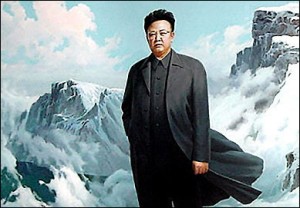Nuclear war is unthinkable, so conventional wisdom holds, but nuclear terror and blackmail are all too easy to imagine. As we drift farther into the nuclear age, it is increasingly clear that the proliferation of the capacity to cause mass destruction is but one part of the danger the world faces. The other is the simultaneous growth in the number of individuals, many of them suicidal, desiring to cause such colossal harm.
How do we cope with this two-pronged danger? In the past 12 years, Pakistan and North Korea have joined the “club”

Club Member
of states that have nuclear weapons. Now nine states (the United States, the Russian Federation, China, the United Kingdom, France, India, Israel, Pakistan, and North Korea) have the capacity to destroy millions of people instantaneously, and millions more via radiation and the destruction of habitat. Four of these states (India, Israel, Pakistan and North Korea) are not even signatories to the Treaty on the Non-Proliferation of Nuclear Weapons (NPT).
Add to this the several dozen other states that either run nuclear power or research reactors or plan to develop nuclear programs that they say are for peaceful uses. The capacity of international institutions such as the IAEA to monitor and ensure appropriate safeguards and compliance with control regimes is near its practical limit. The latest statement by the IAEA’s Director General, Yukiya Amano, welcomes the spread of nuclear power for production of electricity at the same time that it criticizes Iran, North Korea and Syria for not complying with safeguards agreements.
This strikes me as thinking that is fundamentally flawed. Unless and until the international community can enforce full compliance by states that already have access to nuclear material, it is foolhardy to encourage or welcome the further spread of nuclear technology. The example of Iran, sitting on some of the world’s largest reserves of oil and natural gas, demanding its “right” to develop nuclear power while only selectively observing its NPT obligations, should be instructive. China has become so involved in agreements to purchase Iran’s hydrocarbons that it refuses to enforce any meaningful sanctions in response to Iran’s hidden development of enriched uranium. To add to the mess, the U.S.’ own sanctions against Iran are not being observed very effectively, as the NYT recently reported.
There are a few brave efforts being undertaken by groups such as Ploughshares Fund and the Nuclear Threat Initiative to deal with this existential threat. I recently attended a Ploughshares event here in San Francisco, featuring two of this initiative’s spokespersons — former Secretary of State George Shultz and former Secretary of Defense Bill Perry. Shultz and Perry, along with former Secretary of State Henry Kissinger and former Senator Sam Nunn, are strong advocates of Ploughshares’ step-by-step approach to verifiable reduction of nuclear weapons and more effective control of nuclear material.
You can listen to Shultz and Perry here. Better yet, go to the Nuclear Threat Initiative’s Nuclear Security Project site and ask them to send you their DVD, Nuclear Tipping Point.
It is clear that the U.S. and the Russian Federation are in the final stages of a new strategic arms reduction treaty (START), which will be a substantial sign of commitment by the world’s two largest nuclear powers. The Obama Administration is also planning reasonable unilateral reductions in the U.S. nuclear arsenal. However, this must be only the start of a much more ambitious and comprehensive international effort to reduce and safeguard nuclear material.
There is literally no time to lose.